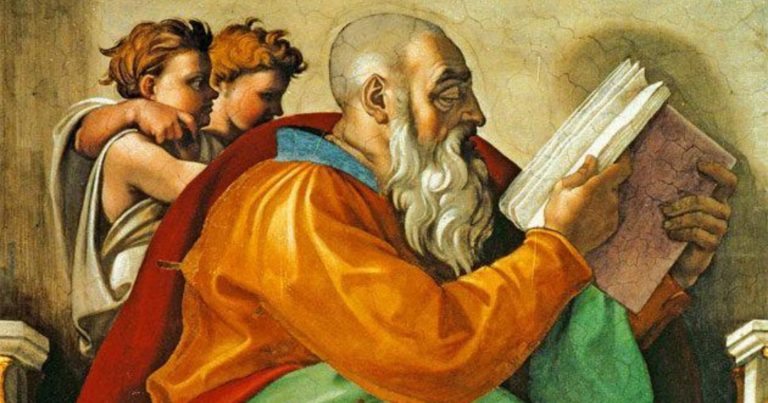The number 12 holds a profound symbolism in the Bible, woven into its narrative fabric from Genesis to Revelation.
It represents perfection, authority, and completeness, often signaling the foundation of God’s divine order.
Throughout the Scriptures, 12 appears in significant contexts: the 12 tribes of Israel, the 12 apostles, and more, each instance rich with theological implications.
This symbolism is not just a matter of numerology but is deeply embedded in the story of God’s people and His plans for redemption and restoration.
In this article, we will explore how many times the number 12 is used in the Bible, where it appears, and what it symbolically represents.
Understanding the symbolism of 12 in the Bible
The number 12 is a symbol of faith, the church, and divine rule.
In total, it appears 187 times in the Bible.
In the Old Testament, the foundation of God’s chosen people is represented by the twelve sons of Jacob, from whom the twelve tribes of Israel originate.
This establishes early on a pattern of using 12 as a representation of completeness and God’s governance.
Moving to the New Testament, Jesus chooses twelve apostles to spread his teachings, reinforcing the number’s symbolism of authority and spiritual completeness.
The apostles are tasked with laying the foundation for the church, indicating that 12 also symbolizes the whole of God’s people.
In Revelation, the number takes on eschatological significance.
The New Jerusalem, symbolic of God’s eternal kingdom, has twelve gates guarded by twelve angels, and the walls have twelve foundations adorned with the names of the twelve apostles.
By examining these instances, it becomes clear that 12 embodies more than a numerical value — it signifies a perfect spiritual order instituted by God across different covenants and testaments.
The number 12 in the Old Testament
In the Old Testament, the number 12 emerges as a foundational symbol, marking the beginnings of God’s chosen people.
For example, the twelve sons of Jacob became the patriarchs of the twelve tribes of Israel. And this passage shows the structure of God’s kingdom on earth.
These tribes, from Reuben to Benjamin, embody the completeness of God’s community, united under His promise.
Another example is Exodus 24:4 which mentions:
“Moses wrote down all the words of the LORD. He got up early the next morning and built an altar at the foot of the mountain and set up twelve stone pillars representing the twelve tribes of Israel.”
This act cements the number 12 as a cornerstone of divine governance and covenantal faith. It illustrates its deep-rooted significance in the narrative of salvation and identity within the scriptures.
The number 12 in the New Testament
In the New Testament, the symbolism of the number 12 evolves, yet remains deeply anchored in the concepts of divine authority and spiritual fulfillment.
Central to this is Jesus’s selection of twelve apostles, a deliberate act that mirrors the twelve tribes of Israel.
This passage reflects continuity and completion in God’s salvific plan.
“He appointed twelve that they might be with him and that he might send them out to preach” (Mark 3:14).
This group of twelve chose to lay the church’s foundation, embodying the new covenant and the global mission to spread the Gospel.
Furthermore, in the Book of Revelation, the imagery of twelve becomes a vivid portrait of eternity and divine perfection.
The heavenly Jerusalem is described with “twelve gates, and at the gates, twelve angels” (Revelation 21:12), and the city’s walls rest on twelve foundation stones, each inscribed with the names of the apostles.
Through these depictions, the New Testament amplifies the number 12’s role as a symbol of God’s perfect governance, the unity of His people, and the fulfillment of divine promise.
Appearances of the number 12 in the Scriptures
1. The twelve tribes of Israel
At the heart of the biblical narrative is the story of Jacob, later named Israel, and his twelve sons.
These sons are not just figures in a family story; they are the progenitors of the twelve tribes of Israel.
This division forms a foundational piece of the Old Testament, representing the inception of God’s chosen people. Each tribe, deriving its name and identity from one of its sons, plays a unique role in the history and prophecy of the Bible.
Moreover, these tribes encapsulate the idea of divine selection and purpose. They are chosen to bear the covenant between God and humanity, a covenant that underscores the entirety of biblical teachings.
The land allocations, blessings, and roles assigned to each tribe further illustrate how intricately God’s plans are woven into the fabric of human history.
2. The twelve apostles
Transitioning from the Old Testament to the New, the symbolism of 12 finds a renewed expression through Jesus’ selection of the twelve apostles.
This wasn’t a random choice.
Just as the twelve tribes of Israel were foundational to the Old Covenant, the twelve apostles are pivotal to the New Covenant.
Through them, Jesus establishes a new spiritual Israel, laying the groundwork for the spread of Christianity.
Interestingly, after Judas Iscariot’s betrayal and subsequent death, the apostles felt it crucial to maintain their number at twelve, selecting Matthias to replace Judas.
This action underscores the importance of the number 12 in maintaining divine order and completeness in early Christian theology.
3. The New Jerusalem’s twelve foundations
Now, let’s venture into the future, as depicted in the Book of Revelation.
Here, the number 12 takes on a cosmic dimension, particularly in the description of the New Jerusalem.
This city, descending from heaven at the end of times, is not just a symbol of God’s eternal kingdom. It’s a culmination of the biblical symbolism of 12, showcasing divine completeness and perfection.
Did you know that Jerusalem has twelve gates and twelve foundation stones?
These foundations bear the names of the twelve apostles, linking back to our previous point.
This connection between the apostles and the New Jerusalem’s foundations is profound. It suggests that the teachings and sacrifices of these ordinary men are forever memorialized in the very structure of God’s eternal kingdom.
4. The twelve baskets of leftovers
Have you ever pondered the significance of what remains after a miracle?
In the Gospels, we find the miraculous feeding of the five thousand, an event where Jesus’ ability to provide is vividly displayed.
But perhaps equally telling is what comes after – the collection of twelve baskets of leftovers. This detail is not merely an afterthought — it’s a deliberate symbol, rich with meaning.
This act of gathering the remnants serves as a powerful reminder that God’s provision is not only sufficient but abundant.
The 12 baskets represent not just physical sustenance, but a spiritual overflow, echoing the completeness and wholeness found in God’s care for His people.
What’s more, it reassures us that in God’s kingdom, nothing is wasted, and there is always more than enough to meet our needs.
A nugget to ponder: Interestingly, this miracle is one of the few recorded in all four Gospels. And this, in turn, underscores its significance and the universal message of provision and abundance it conveys.
5. The twelve years of waiting
In the gospel narratives, we encounter a woman who had been suffering from bleeding for twelve years before she was healed by Jesus.
This story is not just a testament to Christ’s power to heal but also symbolizes a period of waiting, trial, and ultimately, restoration.
The twelve years this woman endured mirrors the biblical theme of testing and patience before a breakthrough comes.
- It highlights the significance of faith in times of prolonged suffering.
- It reminds us that deliverance, though often delayed, is never denied.
- It underscores the idea that our trials have an expiry date.
In essence, this narrative encourages believers to maintain hope and faith even when faced with long-standing challenges. It reassures us that our periods of waiting are not in vain but are preparation for a moment of divine intervention.
6. The twelve stones at Gilgal
Let’s take a moment to consider a less frequently discussed but equally profound symbol involving the number 12 in the Bible: the twelve stones at Gilgal.
After crossing the Jordan River into the Promised Land, Joshua commands the Israelites to take twelve stones from the riverbed to set up a memorial.
This act was a physical representation of God’s faithfulness in leading His people out of Egypt and into the land He had promised them.
7. The twelve minor prophets
Finally, the twelve prophets in the Bible play a crucial role.
Their teachings, warnings, and promises of hope are as relevant today as they were centuries ago.
Each prophet, from Hosea to Malachi, contributes a unique voice to the chorus calling for repentance, justice, and faithfulness to God.
They remind us that no voice is too small when speaking the truth and that even the briefest message can carry eternal significance.
Here are those 12 prophets and their narratives:
- Hosea: Calls for Israel’s return to God amidst unfaithfulness.
- Joel: Warns of divine judgment and promises future blessings.
- Amos: Advocates for justice and righteousness.
- Obadiah: Pronounces judgment on Edom for its actions against Israel.
- Jonah: Offers a narrative of repentance and God’s mercy.
- Micah: Highlights the requirements of justice, mercy, and humility before God.
- Nahum: Foretells the fall of Nineveh as a symbol of divine vengeance.
- Habakkuk: Questions God’s justice and affirms faith in divine governance.
- Zephaniah: Announces the coming day of the Lord and calls for repentance.
- Haggai: Encourages the rebuilding of the Temple in Jerusalem.
- Zechariah: Offers visions that promise hope and restoration.
- Malachi: Calls for fidelity to the covenant and foretells the coming of Elijah.
Final thoughts
In closing, the number 12 serves as a powerful reminder of the depth and complexity of biblical scripture and its enduring impact on human understanding of divinity and governance.
The symbolism of the number 12 extends beyond spiritual governance and divine order, finding its place in the sacred rituals and structures of ancient worship.
As we navigate our modern world, let us remember the significance of looking beyond the surface, seeking deeper meanings and connections that have shaped human spirituality across millennia.
The symbolism of 12 is not just a tale from the past. It is a living legacy that continues to inspire and guide.














